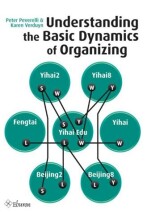Labour Management and the Small Business
8 important questions on Labour Management and the Small Business
Scase states that knowledge of industrial relations in SE is highly limited because
- SE have received little attention in research
- Issues of employer-employee relations a considered non-poblematic
In 1979 Thatcher rejected the post war consesus of corporatism between state, employers and trade unions.
Instead she stated
- combination of free markets, monetarism, entrepreneurism and indivualism, to adress industrial changes of 20th century
- role of state constraint to facilitate individual freedom and choices
- inequallity is motor of enterprise, unemployment is necassary evil
Government reduced level of publicely owned stock and introduces prize competition.
This resulted in 80s in
- mass unemployment
- stimulated growth in self-employment and new SE's
- Higher grades + faster learning
- Never study anything twice
- 100% sure, 100% understanding
Past 15 years more attention for managing employment in SE.
Assumptions about SE
- SE provides better environment for employee
- Employee in SE can more easy see relation between what he's doing and objectives/performances of org.
- Working rules can be varied to suit individual
Assumptions about SE also emerged in early 80s with postmodernism, their points of view
- flexibility: size of SE would facilitate rapid flexible response to changing market demand
- harmony: labour management depends on relations between SE and market
- social negotiation: idea of father figure making key decisions. No formal method of involving employees, other then family culture and friend relations
- formality - informality: LE have formal policy that bounds employment. SE, the relationship with employment reflects ideosyncracies (karakter zaak/persoon) of owner.
Labour management depends on relations between SE and market. There are 4 types of dependency
- Dependent: survival of SE depends on LE
- competitive dependent: SE competes directly with LE, survival depends on ability to cut costs
- old independent: SE is in niche, growth constrained due to market demand
- new independent: LE may invade if profit of expansions are attractive
The implementation of acts (like minimum wage) of the government leads to
- more rules in LE
- SE command lower pay & fewer training
Key elements of employment relations in SE
- Central role of firm owner
- close relationship between owner and employee
- family involvement in firm and its employment
- employees more visible for empoloyer, and vice versa
- informality of management and lack of procedures
The question on the page originate from the summary of the following study material:
- A unique study and practice tool
- Never study anything twice again
- Get the grades you hope for
- 100% sure, 100% understanding
































